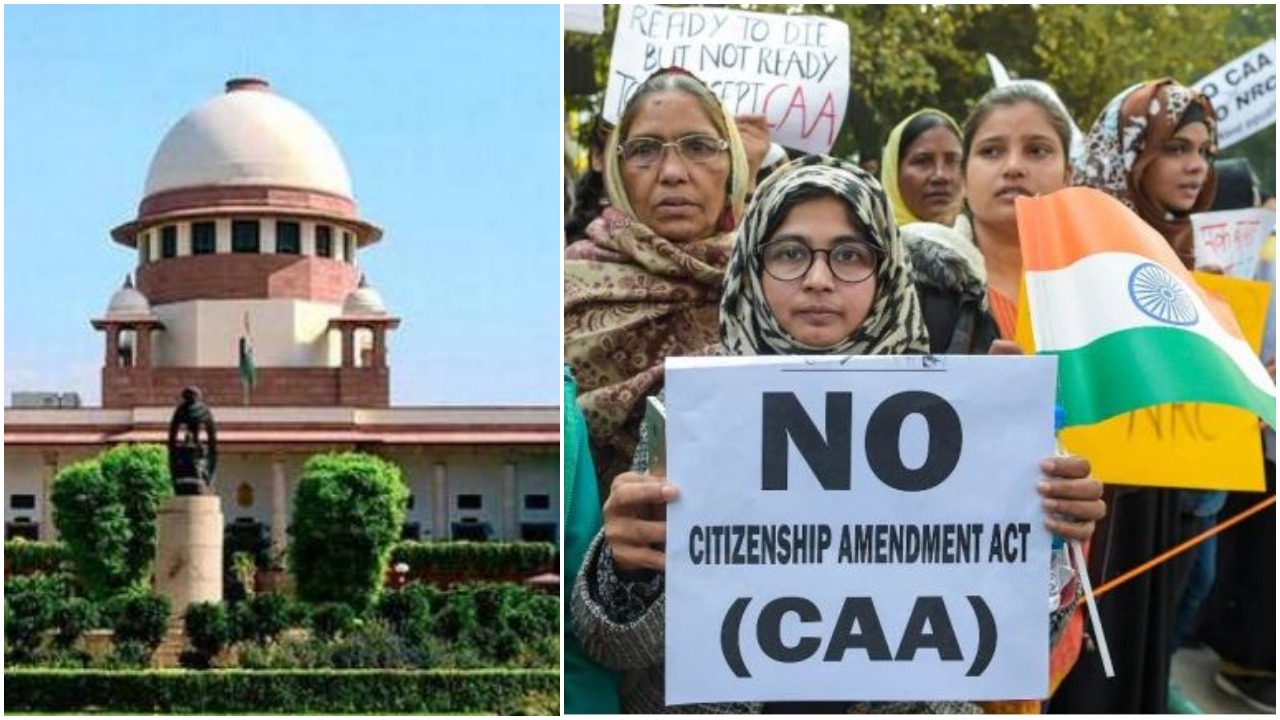
SC refuses to stay CAA, refers pleas to 5-judge Constitution bench
Hearing a batch of over 140 petitions challenging the validity of the Citizenship Amendment Act (CAA) , the Supreme Court on Wednesday (January 21) made it clear that it will not grant any stay on the law without hearing the Centre and referred the pleas to a 5-judge Constitution bench.

Hearing a batch of over 140 petitions challenging the validity of the Citizenship Amendment Act (CAA) , the Supreme Court on Wednesday (January 21) made it clear that it will not grant any stay on the law without hearing the Centre and referred the pleas to a 5-judge Constitution bench.
“Will pass order on granting any interim relief to petitioner opposing CAA after four weeks,” the bench headed by Chief Justice SA Bobde said.
The bench also said that it will hear petitions pertaining to Assam and Tripura separately as the problem with CAA in these two states is different from the rest of the country.
“The petitions concerning Assam and Tripura as well as matters related to Uttar Pradesh, which is going ahead with the implementation of CAA without framing any rules, can be dealt with separately,” the court said.
It also restrained all high courts from hearing pleas on CAA till it decides on the petitions.
Attorney General K K Venugopal, appearing for the Centre, told the bench that the government has been given copies of around 60 pleas out of the 143 petitions. He added that more time was required to respond to pleas that have not been served.
Senior advocate Kapil Sibal urged the bench to put on hold operation of CAA and postpone exercise of the National Population Register (NPR) for the time being.
The CAA seeks to grant citizenship to migrants belonging to Hindu, Sikh, Buddhist, Christian, Jain and Parsi communities who came to the country from Pakistan, Bangladesh and Afghanistan on or before December 31, 2014.
Also read | Protest as much as you can, CAA won’t be withdrawn, says Amit Shah
President Ram Nath Kovind gave assent to the Citizenship (Amendment) Bill, 2019 on December 12, turning it into an Act.
The Indian Union Muslim League (IUML), one of the petitioners, submitted in its plea that CAA violates the fundamental Right to Equality and intends to grant citizenship to a section of illegal immigrants by making an exclusion on the basis of religion.
Another plea filed by Congress leader Ramesh, said the Act is a “brazen attack” on core fundamental rights envisaged under the Constitution and treats “equals as unequal”.
Several petitions have been filed challenging the constitutional validity of the CAA, including by RJD leader Manoj Jha, Trinamool Congress MP Mahua Moitra, AIMIM leader Asaduddin Owaisi.
Several other petitioners include Muslim body Jamiat Ulama-i-Hind, All Assam Students Union (AASU), Peace Party, CPI, NGOs “Rihai Manch” and Citizens Against Hate, advocate M L Sharma, and law students have also approached the apex court challenging the Act.
(With inputs from agencies)

